by Sunny | Nov 29, 2018 | 01 What's New, DNA
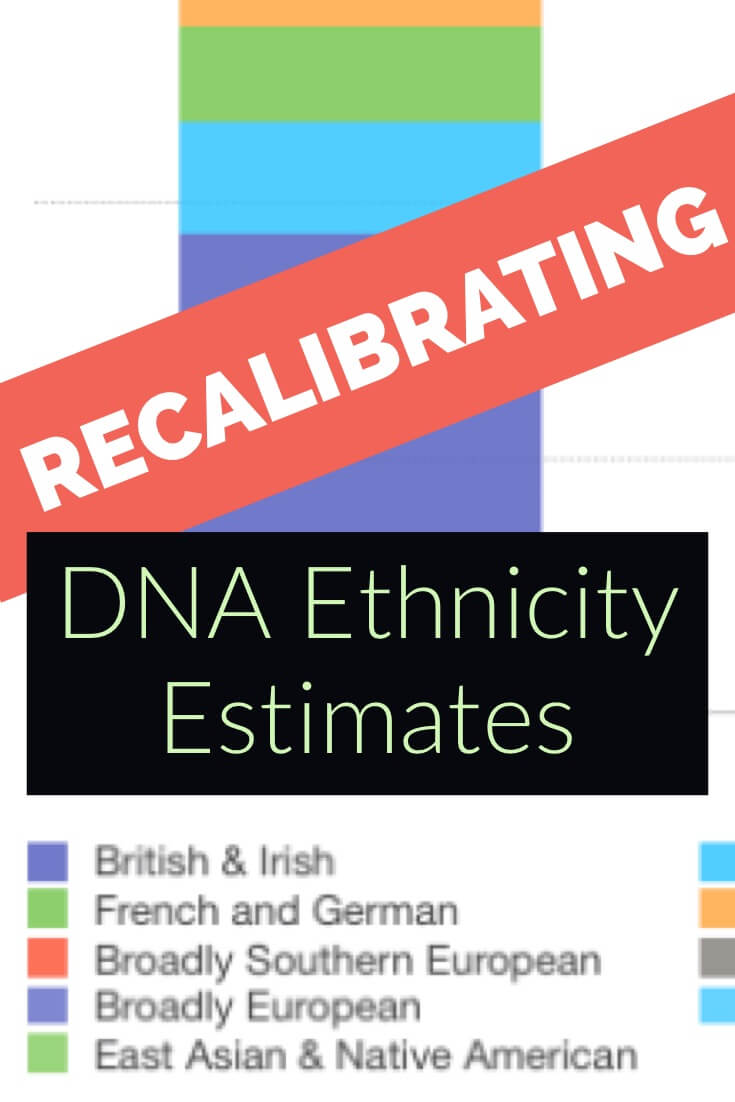 Genealogy testing companies have been hard at work recalibrating your ethnicity calculations based on new and better data. Here’s the latest from Your DNA Guide Diahan Southard.
Genealogy testing companies have been hard at work recalibrating your ethnicity calculations based on new and better data. Here’s the latest from Your DNA Guide Diahan Southard.
Family History DNA Pie Charts and Percentages
Remember that the pretty pie charts and percentages are based on fancy math and reference populations. The initial reference populations released by our testing companies were a great start, but many categories lacked sufficiently high numbers of people to represent all of the facets of a population. In the 10+ years since their release, many updates have been made. But the fancy math that is used to produce our percentages can only be as fancy as the numbers you give it. The numbers have been hard at work at Family Tree DNA, AncestryDNA and 23andMe in the past couple of months with the result being a major overhaul in the way our ethnicity results are reported.
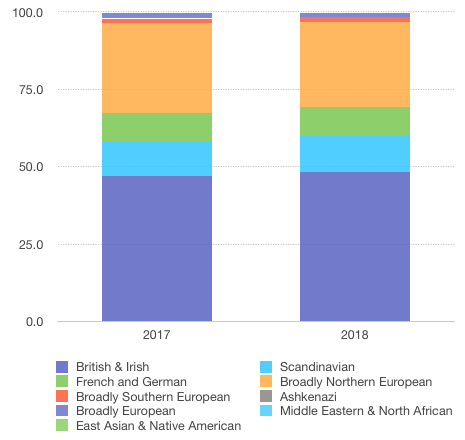
Image 1
23andMe
We recently reported about the update at 23andMe and their increase from 31 reference populations to 150. However, for me, the totally 100% European me, there wasn’t much excitement. As you can see in the 23andMe chart, I had a couple of numbers move up or down slightly, but not anything to write home about. However, I am certain those with South American, or Eastern European ancestry have a much different story. 23andMe added many new reference populations to better represent these underrepresented areas of the world, a move which has likely made a big difference for the ever diversifying pool of individuals who have taken a DNA test.
AncestryDNA
AncestryDNA also released their latest Ethnicity update in September, boasting an additional 13,000 reference samples to their database. They not only upgraded their numbers, but also shifted some of their categories around based on this new data. They seem to not be quite sure what to do with Ireland, as in early 2017 it was its own category, later moving in with Wales and Scotland, and now appears in this latest update as simply Ireland and Scotland. My previous numbers from AncestryDNA seemed to at least loosely reflect my heritage (meaning that I do actually have people in my genealogy chart from a few of these places).
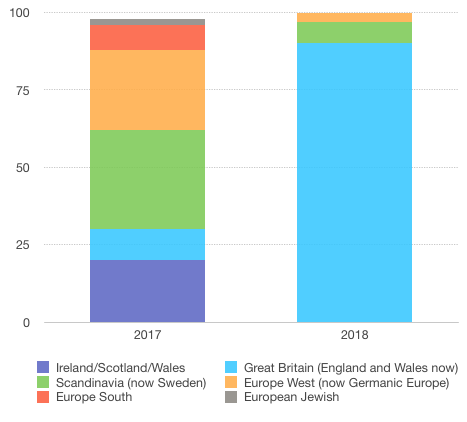
Image 2
But the new DNA numbers? Big Changes.
I have one set of great grandparents from Germany, but it looks like nearly all my German was sucked into England, but miraculously, they seemed to have precisely found my Swedish 2X great grandmother, with the 7% that I should have from that area.
With the new update, though I am sad to see my German go, AncestryDNA is now more fully in line with the results I have received from 23andMe, LivingDNA, and MyHeritage, all of which put my England/British Isles count up around 90%. If I compare my results from various companies and combine any subcategories into one England/British Isles category, indicate Scandinavian, and then lump everything else together, the results from the four companies are actually quite similar (I don’t have my own results at Family Tree DNA, only my parents).
My Family History DNA Results
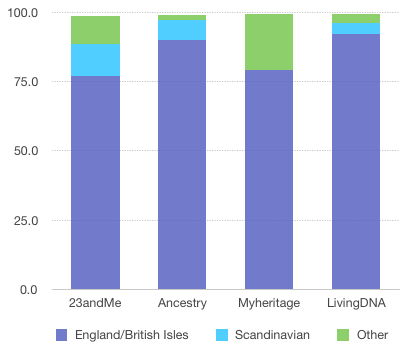
Image 3
Here’s how my results currently stack up at each of these websites. (Image 3)
Which DNA Testing Company to Choose
So which company is the best at all of this? Well, I usually say that if you test everywhere, your “true” answer is likely somewhere in the middle. But really, you can determine which company is best for you by examining their reference populations, and determining which company is most likely able to meet your goals.
In the end, it is always good to remember two things:
- Your DNA does not fully represent your family history, so your ethnicity results can’t possibly tell you everything about your heritage.
- This technology is purposefully titled as an estimate. So be sure you treat it that way.
Learn More about Genetic Genealogy
Recommended reading at Genealogy Gems: Understanding DNA Ethnicity Estimates
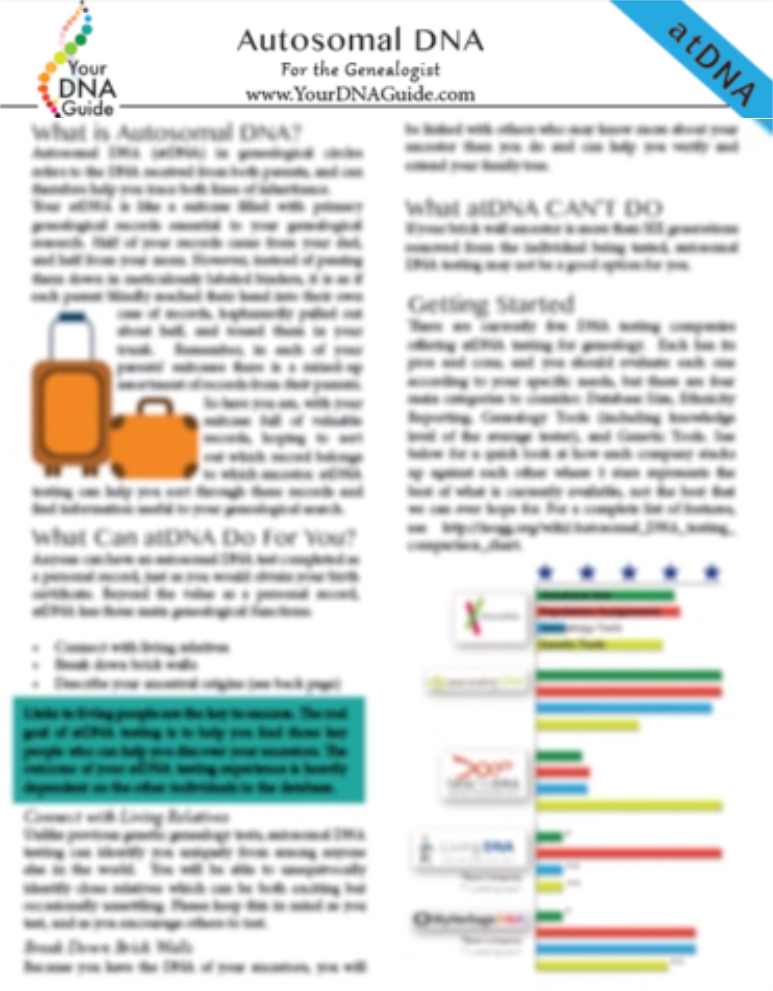
Get Diahan’s quick reference guides including Autosomal DNA for the Genealogist at the Genealogy Gems store.
by Lisa Cooke | Sep 20, 2017 | 01 What's New, Conferences, RootsTech
RootsTech 2018 registration is open! Travel plan alert: you won’t want to miss Wednesday, February 28, the new official opening day. Wednesday is all about technology, and it’s aimed at all of us (not just the techie crowd). We are a little bit giddy at the thought. Here’s our “first look” at what to expect for RootsTech 2018.
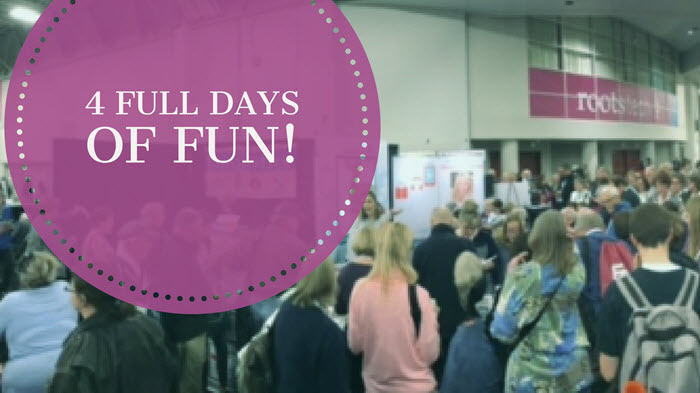
The buzz has already begun for RootsTech 2018! Here’s our synopsis of what’s going to be great about RootsTech 2018:
RootsTech 2018: “Connect. Belong”
Where: Salt Lake City, Utah
When: Wednesday, February 28 – Saturday, March 3, 2018
Hosted by: FamilySearch.org
Registration: Register online ASAP for early-bird pricing
RootsTech 2018: Don’t Miss Wednesday!
Technology day for everyone

Big news: RootsTech 2018 will run for four full days! The dates to mark on your calendar are Wednesday, February 28 – Saturday, March 3. Don’t miss the first day! In the past, Wednesday technology sessions have been targeted at industry movers-and-shakers. This year, Wednesday is still all about technology, but the day’s events have been expanded and broadened for all audiences. There will be an opening General Keynote Session, a new Innovation Showcase, and classes that will appeal to all audiences.
The Innovation Showcase has replaced previous year’s competition. It looks more like a high-tech “show and tell” of even more of the best-and-brightest stars in family history technology. Companies from around the world–from small startups to large organizations–will have a shot at presenting their newest product or service on stage before a large online and in-person audience. The audience will select a “People’s Choice award” via live text voting. (Click here by October 15 to nominate a product or service.)
Wednesday Expo Hall Preview
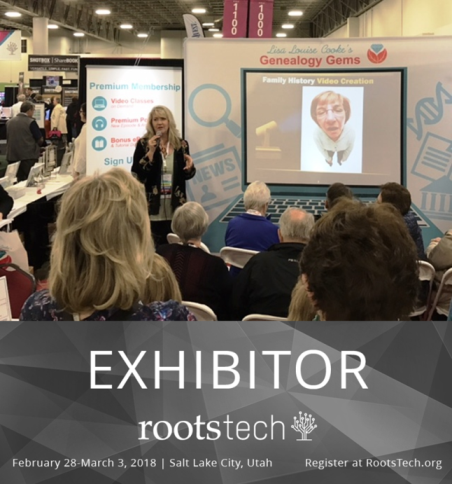 Make plans to come say hello to us on Wednesday evening at the Expo Hall Preview from 6:00 – 8:00 pm. Genealogy Gems will be there with another ultimate Exhibitor Hall experience (click here to get an idea of what’s coming). The Expo Hall is a stunning, not-to-miss experience, whether you love the energy of the crowd, the glamorous displays, or the chance to talk one-on-one with people from your favorite genealogy companies and services.
Make plans to come say hello to us on Wednesday evening at the Expo Hall Preview from 6:00 – 8:00 pm. Genealogy Gems will be there with another ultimate Exhibitor Hall experience (click here to get an idea of what’s coming). The Expo Hall is a stunning, not-to-miss experience, whether you love the energy of the crowd, the glamorous displays, or the chance to talk one-on-one with people from your favorite genealogy companies and services.
RootsTech 2018 Registration: Plan Early for the Best Experience
In addition to what’s new, many great RootsTech traditions promise to continue this year: expect dazzling keynotes, over 300 official RootsTech classes, and world-class evening entertainment. (Click here to watch my 2017 “Genealogy Giants” RootsTech lecture or click here for the recently-released 2017 keynote by LaVar Burton.) More details about this year’s keynotes and performers will be announced in the coming months, so check back with us often. We are official RootsTech Ambassadors and we’ll have the inside scoop on all the latest information and updates.
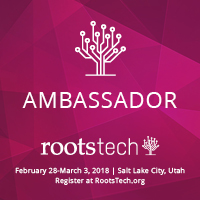 RootsTech registration is now open! There are lots of registration options–from a free Family Discovery Day experience on Saturday to a budget-friendly “Getting Started” four-day pass ($69 early-bird price) to the full RootsTech Pass ($169 early-bird price). Click here for a comparison of what each pass offers. And here’s a tip from a RootsTech veteran: Make your hotel reservations early! Those downtown hotels fill up so quickly.
RootsTech registration is now open! There are lots of registration options–from a free Family Discovery Day experience on Saturday to a budget-friendly “Getting Started” four-day pass ($69 early-bird price) to the full RootsTech Pass ($169 early-bird price). Click here for a comparison of what each pass offers. And here’s a tip from a RootsTech veteran: Make your hotel reservations early! Those downtown hotels fill up so quickly.
Going to RootsTech for the first time? Click here for a RootsTech Q&A with Lisa Louise Cooke.
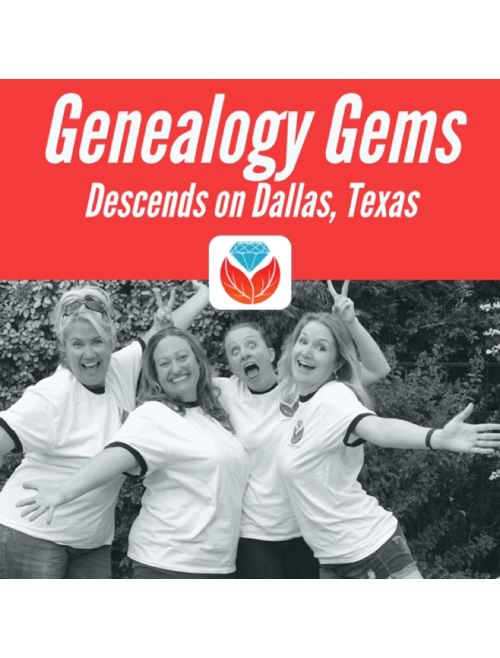
The Genealogy Gems team can’t wait to see you at RootsTech 2018!
by Lisa Cooke | Jun 27, 2017 | 01 What's New, Digital Archives, Family History Library, FamilySearch, Records & databases |
Just announced: The FamilySearch microfilm lending service will end on August 30, 2017. Let’s cover what we know so far, how it may impact you, and strategies for getting the information you need.
WHAT: FamilySearch Microfilm Lending Ends
Most of the Family History Library’s microfilm vault has already been digitized and is online–or will be within a short time. According to the website:
“Over 1.5 million microfilms (ca. 1.5 billion images) have been digitized by FamilySearch, including the most requested collections based on microfilm loan records worldwide.”
However, the world’s largest lender of microfilmed genealogical records will be discontinuing the distribution of microfilms to Family History Centers in the near future.
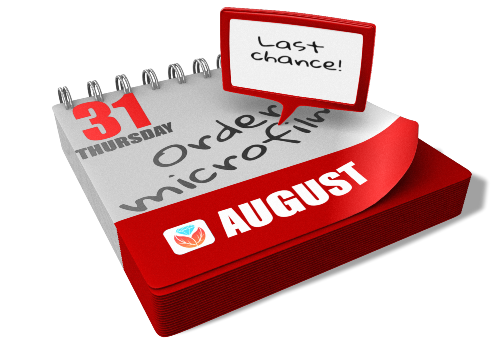 “On September 1, 2017, FamilySearch will discontinue its microfilm distribution services,” announced the site yesterday. “The change is the result of significant progress in FamilySearch’s microfilm digitization efforts and the obsolescence of microfilm technology. Digital imaging has made it easier to find ancestors through the internet, mobile, and other technologies.”
“On September 1, 2017, FamilySearch will discontinue its microfilm distribution services,” announced the site yesterday. “The change is the result of significant progress in FamilySearch’s microfilm digitization efforts and the obsolescence of microfilm technology. Digital imaging has made it easier to find ancestors through the internet, mobile, and other technologies.”
This means the clock is now counting down your ability to borrow microfilmed genealogical records from the Family History Library. The last day you can place an order for delivery to your local Family History Center is August 31, 2017.
It’s a change I’ve seen coming, but it’s still a little disconcerting now that it’s here. But change is the norm in today’s busy world, so let’s break down the details we know so far together.
WHY: Why are they discontinuing microfilm lending before they’re done digitizing?
It’s just too expensive. “The cost of duplicating microfilm for circulation has risen dramatically, while demand has decreased significantly,” says a FamilySearch Q&A. “At the same time, it has become increasingly difficult and costly to maintain the equipment, systems, and processes required for film duplication, distribution, and access.” FamilySearch wants to redirect its microfilm lending resources to providing more and better electronic record access.
I have personally visited the microfilm distribution facility, and the best analogy I can give you is that it looks a bit like the inside of an Amazon warehouse. It’s a mammoth and expensive undertaking, certainly not something you open or close lightly. I’m thankful that in the decades before the Internet, FamilySearch devoted so many resources to helping all of us gain access to hard-to-find records from around the world.
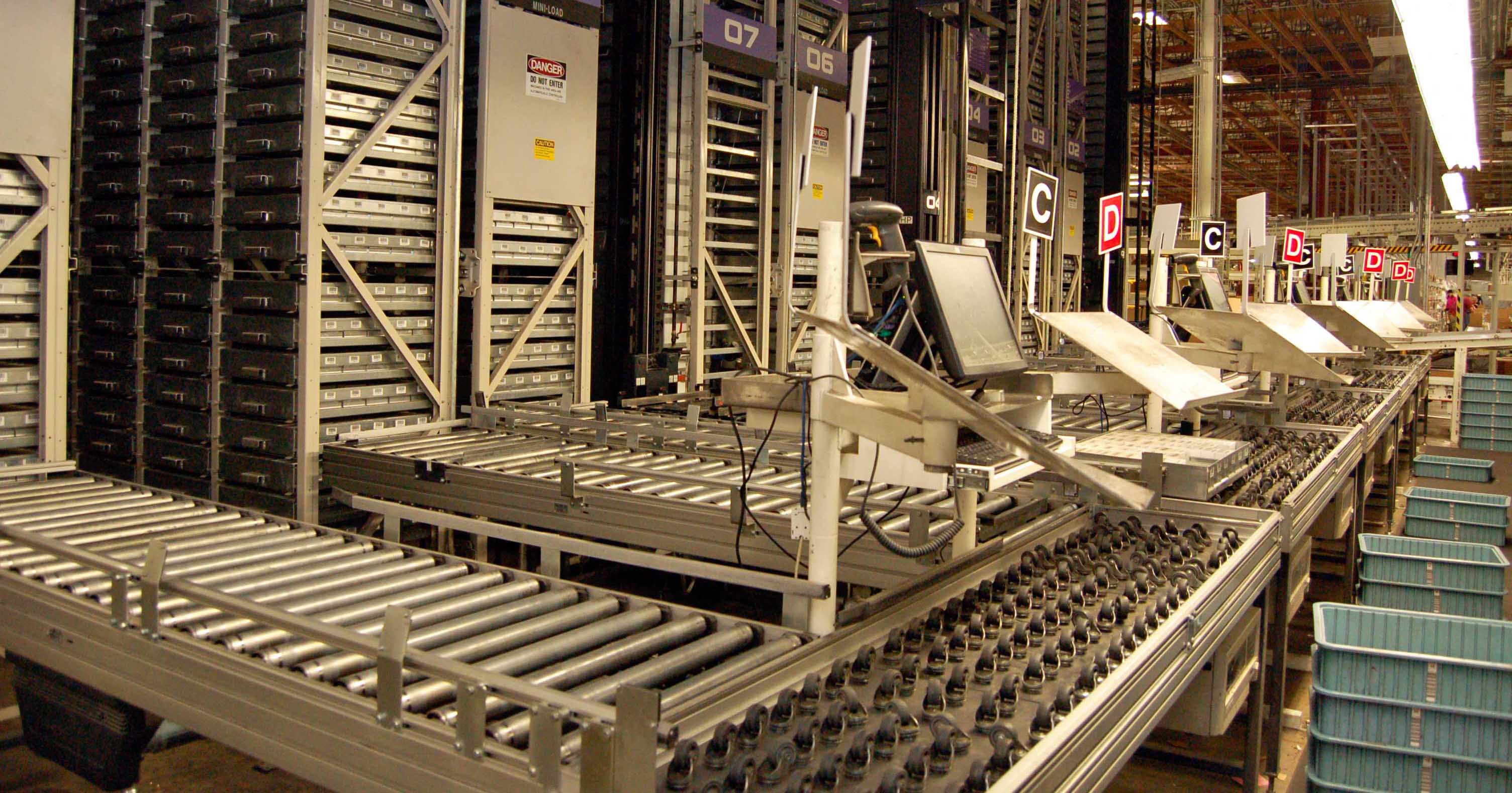
Photo Credit: Lisa Louise Cooke
WHEN: What will be available online and when
According to FamilySearch, they hope to finish digitizing the records that they have permission to digitize, in 2020. Unfortunately, some films we will not be digitized because of contractual limitations, data privacy, or other restrictions. Look to the Catalog for access details for the records you want.
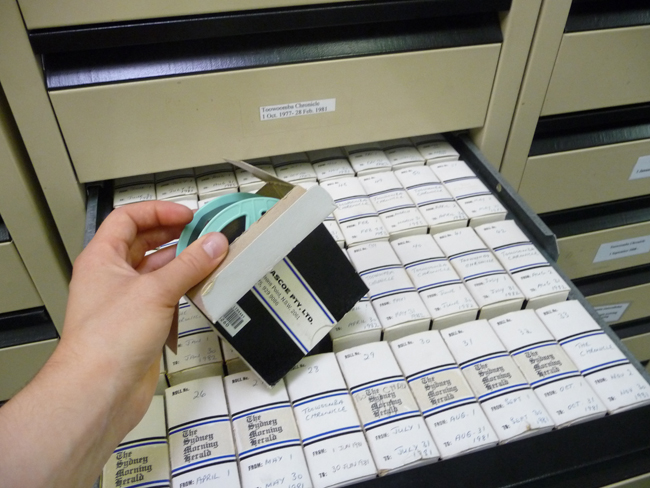
By Lhsunshine (Own work) [CC BY-SA 3.0 (http://creativecommons.org/licenses/by-sa/3.0)], via Wikimedia Commons
HOW: How to order FamilySearch microfilms between now and August 31, 2017
I encourage you to use the microfilm lending service while it is still available. While most microfilmed records will be eventually digitized, the fate of a small percentage may remain unknown for some time. Follow these steps to view them now:
1. Go to FamilySearch.org and log in, or create a free login. (You’ll need the login to order records.)
2. Under the Search menu, select Catalog.
3. Search by location, listing first the largest jurisdiction (such as the country) and proceeding to the smallest, such as “United States, Illinois, Cook, Chicago.”
4. Review search results by clicking on the record categories and then each entry. Within the entries, watch for interesting items that only list microfilm or microfiche formats.
5. Within record entries, order items you want by clicking the microfilm reel icon on the far right, under Format. Select the lending period and the correct currency. It currently costs $7.50 USD to borrow a microfilm reel for 90 days.
During the order process, you’ll select a family history center near you to receive the item(s). When your order arrives, you’ll be notified. Check the center’s schedule before visiting; most have limited hours. Centers are free to use. When you get there, identify yourself and request your film. Then put it in the microfilm reader and scroll through it until you find the item number and pages you need. (Here’s a helpful article: How to Use a Microfilm Reader.)
What about accessing microfilmed records after August 31, 2017?
You’ll still have several options. Sunny Morton, author of the quick reference guide Genealogy Giants: Comparing the 4 Major Websites, says the FamilySearch catalog will still be a go-to resource:
“At this point, the Family History Library in Salt Lake City, Utah still plans to keep on hand microfilmed copies of records that are not yet online. So your options include going to view them in person (since to the best of our knowledge the library won’t be lending them), arrange for someone else to view them (such as through the Random Acts of Genealogical Kindness Facebook group), or use the FamilySearch Catalog to identify the records and then attempt to locate them through other repositories and websites.
To find records you may borrow from other sources, click where it says ‘View this catalog record in WorldCat for other possible copy locations’ [see screenshot below]. This will take you directly to this item’s listings in WorldCat, which is the enormous, free multi-library online catalog. Look either for a copy at a library near you, or a copy at a facility that participates in inter-library loan. (This is the same process you already have to use to find copies of books you can borrow, since the Family History Library doesn’t lend these, either.)”

What about accessing the digitized records?
After August 31, 2017 many genealogists will be turning to the online FamilySearch catalog and Family History Center Portal. (Learn more about the Portal at the FamilySearch Wiki.) As you attempt to view records through the portal, you may be prompted to go to a Family History Center to view the record, and the site will link you to a map of all locations. It’s important to understand the difference between an official Family History Center and an Affiliate Center. We’ve learned that Affiliate Centers do not have access to what is called the Family History Portal. That portal is only accessible from an officially designated Family History Center.
So how do you know which location on the map is official, and which is an affiliate? I turned to genealogy blogger and friend of Genealogy Gems Amie Tennant for clarification:
The (online) FamilySearch map of Family History Centers is not accurate. With the new changes to microfilm loans, this is going to be a big problem. In other words…if a person assumes all FHCenters are the same and travels to the nearest one, they will be sorely disappointed to realize that this one will NOT have access to all the digitized microfilm. (Researchers) should call ahead to confirm whether the center they see on this map is an affiliate or a full FHC with access to the portal.
I’ve reached out to FamilySearch for additional official information on this and several other important questions that have arisen with the discontinuation of microfilm lending. I’ll report to you here on the Genealogy Gems blog and the podcast as more information becomes available. Check out Amie’s article for more information on the various levels of access.
What do you think?
The end of the FamilySearch microfilm lending service is a major milestone. It signals exciting future online access, but provides obstacles for the next few years. What suggestions do you have for researchers to gain additional access to essential microfilm? Please share with the Genealogy Gems community in the Comments below.
 Genealogy testing companies have been hard at work recalibrating your ethnicity calculations based on new and better data. Here’s the latest from Your DNA Guide Diahan Southard.
Genealogy testing companies have been hard at work recalibrating your ethnicity calculations based on new and better data. Here’s the latest from Your DNA Guide Diahan Southard. 






 Make plans to come say hello to us on Wednesday evening at the Expo Hall Preview from 6:00 – 8:00 pm. Genealogy Gems will be there with another ultimate Exhibitor Hall experience (
Make plans to come say hello to us on Wednesday evening at the Expo Hall Preview from 6:00 – 8:00 pm. Genealogy Gems will be there with another ultimate Exhibitor Hall experience ( RootsTech registration is now open! There are lots of registration options–from a free Family Discovery Day experience on Saturday to a budget-friendly “Getting Started” four-day pass ($69 early-bird price) to the full RootsTech Pass ($169 early-bird price).
RootsTech registration is now open! There are lots of registration options–from a free Family Discovery Day experience on Saturday to a budget-friendly “Getting Started” four-day pass ($69 early-bird price) to the full RootsTech Pass ($169 early-bird price). 
 “On September 1, 2017, FamilySearch will discontinue its microfilm distribution services,”
“On September 1, 2017, FamilySearch will discontinue its microfilm distribution services,” 

